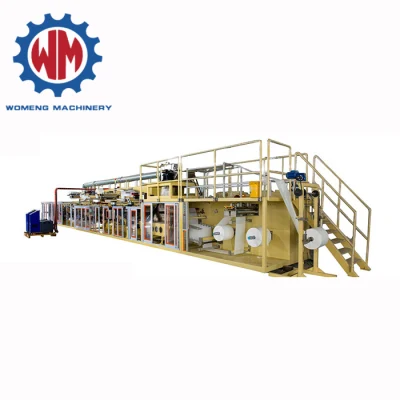Ensuring the ethical sourcing of raw materials for a diaper production line involves implementing several measures:
- Supplier Selection: Conduct thorough due diligence when selecting suppliers to ensure they adhere to ethical and sustainable sourcing practices. Choose suppliers that have transparent supply chains and can provide documentation certifying the ethical sourcing of raw materials.
- Certifications: Look for raw material suppliers that hold certifications from reputable organizations, such as the Forest Stewardship Council (FSC) for wood pulp or the Global Organic Textile Standard (GOTS) for organic cotton. These certifications verify that the raw materials have been responsibly sourced and produced.
- Supplier Audits: Conduct regular audits of suppliers’ facilities to assess their compliance with ethical sourcing standards. Audits should evaluate factors such as labor practices, environmental impact, and adherence to local regulations.
- Traceability: Implement systems to track the journey of raw materials from the source to the production facility. diaper production line This ensures transparency and accountability throughout the supply chain, allowing you to verify the ethical sourcing of materials and identify any potential issues or discrepancies.
- Supplier Code of Conduct: Establish a supplier code of conduct that outlines expectations regarding ethical sourcing practices, labor standards, environmental responsibility, and compliance with relevant laws and regulations. Require suppliers to adhere to this code as a condition of doing business with your company.
- Collaboration with NGOs: Partner with non-governmental organizations (NGOs) or industry groups that specialize in ethical sourcing and sustainability to gain insights and guidance on best practices. These organizations can provide expertise, resources, and support in implementing ethical sourcing initiatives.
- Training and Education: Provide training and education for suppliers and employees on ethical sourcing principles, including the importance of fair labor practices, environmental conservation, and social responsibility. Empower stakeholders to understand and uphold ethical standards throughout the supply chain.
- Continuous Improvement: Regularly review and update your ethical sourcing policies and practices to reflect evolving standards, industry trends, and stakeholder expectations. Seek feedback from suppliers, employees, customers, and other stakeholders to identify areas for improvement and implement corrective actions as needed.
By implementing these measures, diaper production lines can help ensure that raw materials are sourced ethically, responsibly, and sustainably, minimizing negative social, environmental, and ethical impacts throughout the supply chain.
